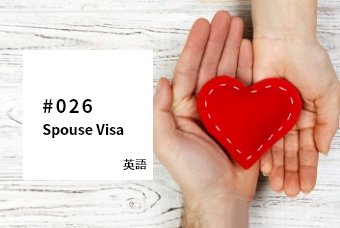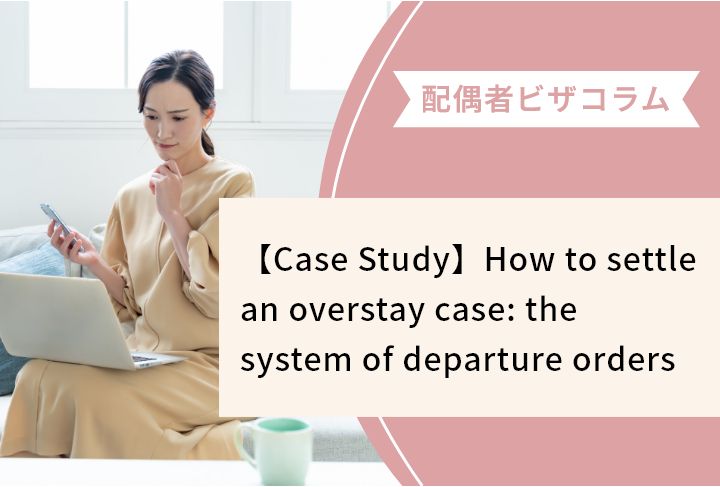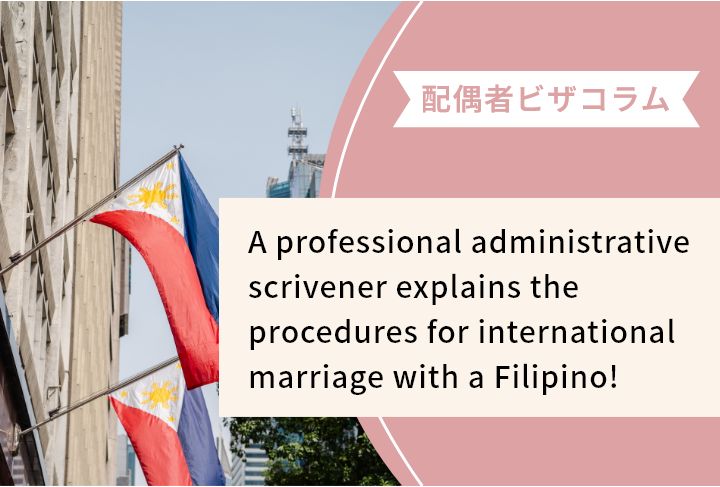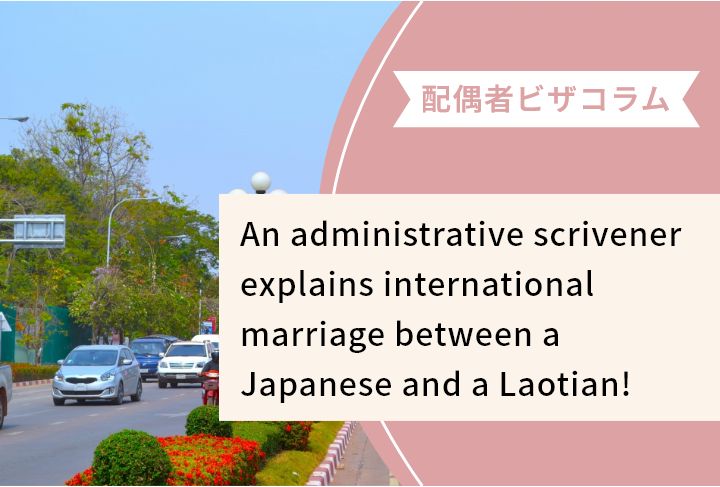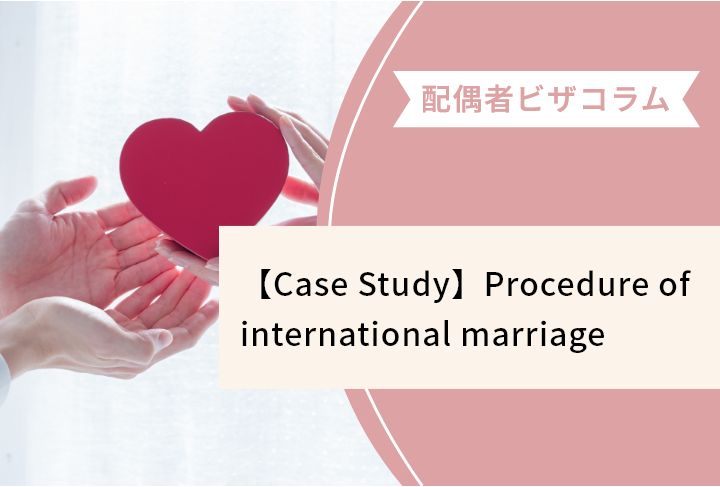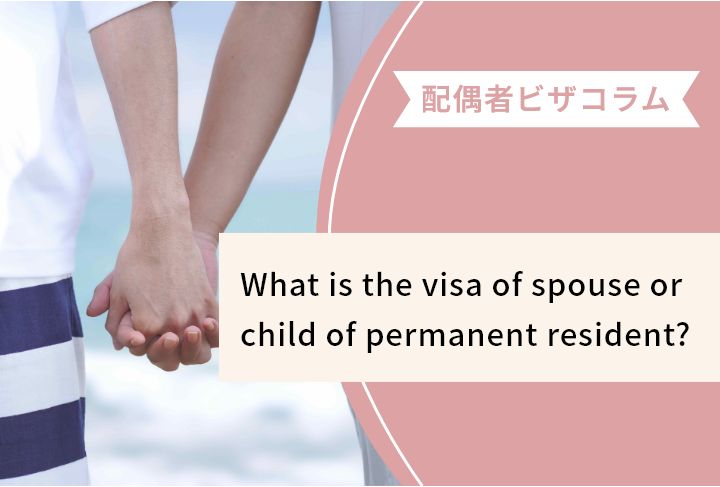【Case Study】Reapplication in case of non-permission of a spouse visa application
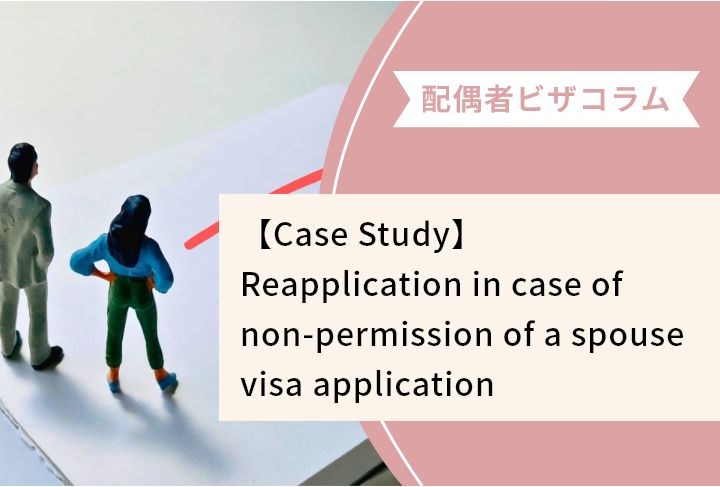
A Japanese male got married to a Chinese female. She applied for a spouse visa twice in the past, but she could not obtain the Certificate of Eligibility (a permit) from the immigration office.
They couldn’t find a solution for a long time, not knowing the specific reasons for the disapproval.
After a while, they tried for the third time while feeling uncomfortable with the situation, but they again got a notice of non-issuance from the immigration office.
The husband was completely at a loss and came to us for consultation because he found it difficult to reapply for a spouse visa on their own.
We receive many inquiries from those who got non-permission of a spouse visa although they got information from the internet and immigration offices to try applying on their own. While it is easy for some people to obtain a spouse visa, it becomes difficult to reapply once it is denied, which is a characteristic of spouse visas.
We believe that many of the rejected cases we hear from our clients were rejected by lack of knowledge of applicants and could have been permitted if done differently.
What kind of knowledge is needed to prevent such rejection of spouse visas?
In this article, we will describe as to the examination points of spouse visas and the reapplication after non-permission.
Index
1. Get to know the provisions in the Immigration Act
In order to obtain a spouse visa permission, you must meet the criteria required by the Immigration Services Agency. For that, the first thing many people check is the website of the Immigration Services Agency. Japanese spouse visas are stipulated by the Immigration Act as follows:
“The spouse of a Japanese national, or a child specially adopted by a Japanese national or those born as the child of a Japanese national.”
Many people may think that the Immigration Act provide details, but in reality, there is only one sentence provided as a statutory requirement. In other words, the provisions in the Immigration Act does not tell you the points of examination on spouse visas.
Then, on what basis immigration officers determine whether a spouse’s visa is permitted or not?
2. How is do immigration authorities carry out examination?
Here, we will introduce the criteria used for immigration examination on spouse visa permission.
Immigration officers carry out examination on spouse visa applications by verifying materials submitted by applicants in accordance with relevant laws and regulations. For the immigration examination, there are criteria set forth in guidelines for examination procedures (shinsa-yoryo). By conducting examination in accordance with such criteria makes it possible to provide uniformed examination.
Some guidelines for examination procedures are disclosed to the public, but some are not. They are called public guidelines for examination procedures and private guidelines for examination procedures.
In fact, in the private guidelines, many of the examination points for spouse visa permission are indicated.
3. Get to know points of examination concerning spouse visas
What kind of points are described in the private guidelines for examination procedures? We can only analyze from the titles of each item in the private guidelines, as other parts are blacked out.
Below are some of the items that are described as the points of examination.
・ Tax certificate
・ Questionnaire
・ Proof materials related to dating and interactions
・ Request to submit additional materials
In addition, as other points to note in the examination, there are many points of issue provided in the private guidelines for examination procedures such as the following:
・ Ability to pay expenses
・ Amount of income
・ The way of thinking about public burden, etc.
There are many possible problems indicated in the private examination procedure.
If you are aware of these points when preparing the application for a spouse visa, you will not usually miss those points.
We also pay attention to the immigration examination procedures when carrying out our daily work.
4. Applying for a spouse visa by guesswork is risky!
We hope now you understand that the analyzation of the public and private guidelines for examination procedures is a clue to solving the problem.
Experiencing spouse visa applications many times is the fastest way to find out the details described in the private examination guidelines and the points of examination, but most people do not repeat applying for a spouse visa many times.
We think that the advantage of appointing administrative scriveners specializing in international cases is their high level of experience.
By simply attaching the documents listed in the website of the Immigration Services Agency, or referring to information on the internet with wrong premises may increase the risk of rejection of a spouse visa application, as some points are missed or things which should be considered are not considered in the application documents.
It is extremely important to know the examination points for spouse visas in advance and prepare application based on such points in order to avoid non-permission.
5. What applicants should do if their spouse visa applications are denied?
If your spouse visa is rejected unfortunately, the first thing you should do is to ask the immigration officer the reason for the rejection. This is what we actually do for the cases we handle. Asking the reasons for rejection of a spouse visa is one of the most important tasks for reapplication.
Please take the following materials with you when you visit the immigration office to ask the reasons for rejection.
* For identity verification purposes, they do not explain the reasons for rejection by telephone.
(1) Notice of non-issuance (non-permission)
(2) Identification card (driver’s license or basic resident register card (juki card) if you are Japanese; residence card, passport, etc. if you are a foreigner)
The immigration offices are open from 9:00 am to 4:00 pm. No reservation is basically required for asking the reasons for rejection, but please contact the relevant immigration office with jurisdiction for details.
6. Do immigration offices tell applicants every reason for non-permission?
We will introduce a part of a notification regarding points to note about dispositions of entry to and residence in Japan (Ministry of Justice No. 5964 dated October 1, 2004).
“At the time of adverse disposition, it is required to clarify which requirement stipulated by law is not fulfilled.”
The existence of above notification is a part of the reasons why examiners explain the reasons for rejection. The examiners also answer other questions, so if you have any questions, you can ask them directly.
It is important to note here that you should avoid fighting with the examiner, even if you disagree with the reasons. We understand the frustration you would feel by the rejection of your spouse visa application, but the result will not change even if you complain to the examiner.
Please understand that the non-permission of a spouse visa can be relieved only by reapplication.
So, if there are multiple reasons for disapproval, will the immigration office tell you all the reasons?
The answer is no.
There are actually some immigration officers who explain all reasons, but they have no legal obligation to do that.
Therefore, it is indispensable for successful reapplication to verify the reasons for disapproval which were told at the immigration office.
7. Is there a possibility of permission even after receiving non-permission once?
“Is there a possibility of permission even after receiving non-permission once?”
This is the most frequently asked question from our clients whose spouse visa applications were rejected.
The answer depends on the case.
If the criteria in the guidelines are obviously not satisfied (i.e. The livelihood foundation required by the Immigration Services Agency is not met), reapplication of a spouse visa will not be a success unless the situation is improved (Even in such case, we will ask clients questions to find out if there are any positive factors).
Indeed, the above-mentioned case was a case where the applicant repeated to apply without verifying the reasons for rejection.
On the other hand, reapplication may succeed in cases where the proof is insufficient or where the circumstances which should be considered are not considered. There is a good chance to obtain permission for a spouse visa, regardless of the history of rejection.
In any case, for successful reapplication, it is important not to give up no matter what the outcome was in the previous application.
8. The result of the case example
One of the reasons why the spouse visa application was denied in the above-mentioned case was that there was a discrepancy between the explanation by the husband and that by the wife as to their relationship before marriage. Another reason was that the dating period until marriage was short.
We conducted a detailed interview with the husband and wife about the situation of their relationship before marriage. Then, in reapplication, we submitted a written explanation of why such discrepancy occurred, to the relevant immigration office along with supporting materials.
In addition, regarding the dating period until marriage, we conducted detailed interviews with the couple to clarify when and how they decided to get married, how they dated, etc. to demonstrate that their marriage was genuine. At the same time, we prepared proof to show that the couple had been interacting with each other all the time. Then we finally reapplied for a spouse visa permission.
Since they had been rejected 3 times before, the examination period took longer than normal cases of spouse visas, but they managed to obtain spouse visa permission.
9. Summary
In this article, we focused on reapplication for spouse visas, about which we often get inquiries.
“What should I do if my spouse visa is rejected…?”
First, please do not panic and request for an explanation of the reason for the disapproval at the immigration office.
After that, please repeat verification so that reapplication will not be denied by the same reason.
*We recommend to keep copies of all application documents submitted to the immigration office to prevent a situation where you cannot conduct verification because there are no materials on hand.
Only after reverifying the reasons for disapproval, you should proceed to prepare for reapplication with all examination points satisfied. If you prepare application documents without verifying the reasons for rejection, it may take longer till you receive your visa as a result, so please be careful.
Please do not hesitate to contact us if you have difficulty verifying the reason for non-permission of your spouse visa, or if you do not know how to reapply.








